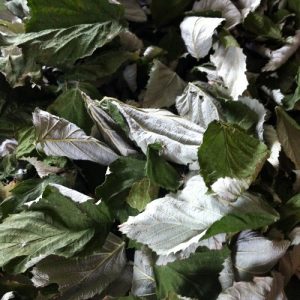
There is a certain joy of tugging a fresh raspberry off its thorny vine. This joy is in the squishy release of red-staining juice between your fingers, the burst of flavor in your mouth, and the confidence in the health benefits of the berry and its seeds. Each berry cluster has a backdrop of green leaves shooting out in sets of three. To the casual grazer, these leaves the barrier between you and getting your hand poked. But to the wild food forager, the leaves are an incredible source of nutrients whether you are at ease or dis-ease.
We’re talking about the Raspberry Leaf, the green foliage with serrated edges packed with so many nutrients that’s gets you excited to drink it. In ancient times and today, raspberry leaf tea is used for its astringent properties – a plant agent that “tightens”. Tannins in the leaves shrink or constrict the tissues, blood vessels, and mucus membranes. Desired results that tighten the skin, help stop bleeding internally and externally, and dry up mucus. Women laud the tea for its ability to strengthen the uterine lining in preparation for birth and for easing the flow during menstruation. Men benefit from the strengthening of the reproductive system as well.
High in Vitamin C, it is a natural stimulant and cancer-fighter. It tones the kidneys, urinary tract, and mucus membranes. The leaf tea benefits the stomach as it reduces ailments, diarrhea, and even parasites. Use it also to purify and strengthen the blood.
All parts of this plant are edible and usable. The berries, leaves, seeds and stems for different applications as a health remedy. This Spring, pick up a Raspberry plant of your own from the store or from a friend, find a sunny place to trellis the vines, dig a hole and plant it for a seasonal superfood and plant medicine.
